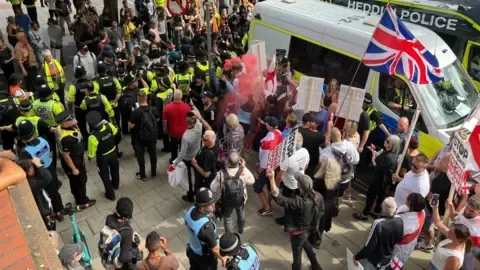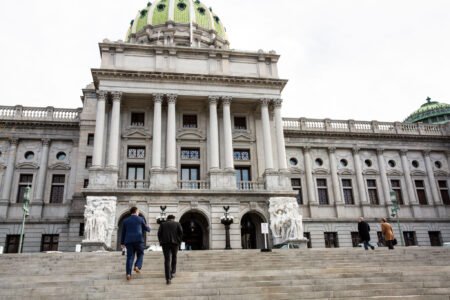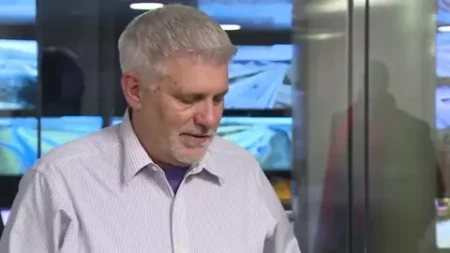Protests against the use of hotels to house asylum seekers have taken place across the United Kingdom, drawing crowds in England, Wales, and Scotland. Demonstrations were reported in cities including Bristol, Liverpool, London, and Newcastle, as well as in Mold, Wales, and Perth, Scotland. Police said there were no reports of serious disorder, though officers were required to keep opposing groups apart as anti-racism campaigners staged counter-demonstrations at several sites.
The wave of protests follows a High Court ruling earlier this week that blocked the use of a hotel in Epping, Essex, to accommodate asylum seekers. Epping Forest District Council had argued that converting the Bell Hotel for housing violated planning regulations and created risks to public safety. The decision has prompted other local authorities to consider launching their own legal challenges against the Home Office, which is responsible for placing asylum seekers in temporary accommodation.
In Bristol, hundreds of anti-racism protesters clashed verbally with anti-migrant groups at Castle Park. Police in riot gear, supported by officers on horseback, held the crowds apart for nearly two hours. Witnesses reported pushing at police lines as some attempted to break through, though no major violence occurred. Bristol City Council confirmed it has no intention of challenging the government’s use of hotels in the city.
In Liverpool, more than 400 demonstrators joined a march organized by UKIP calling for asylum seekers to be deported. They were met by counter-protests from several hundred activists representing Stand Up To Racism and the Merseyside Anti-Fascist Network. Police maintained a visible presence to ensure the groups remained separate throughout the afternoon.
Smaller protests were also recorded in Exeter, Tamworth, Cannock, Nuneaton, Wakefield, Horley in Surrey, and Newcastle. In many of these towns, anti-migrant protesters carried placards demanding asylum seekers be removed from hotels, while counter-demonstrators carried banners reading “Refugees Welcome” and “No to Racism.”
Scotland, though not directly affected by the latest High Court ruling, also saw demonstrations. About 150 anti-migrant protesters gathered outside the Radisson Blu hotel in Perth, chanting slogans and holding signs that read “Get Them Out.” Across the street, more than 200 counter-demonstrators staged their own rally, waving banners that declared “Refugees Welcome.” Police deployed additional officers to the area and used powers allowing them to order groups to move on if necessary.
The protests come amid heightened tensions surrounding the government’s reliance on hotels as emergency housing for asylum seekers. The policy has been heavily criticized by local residents, who argue that hotels are unsuitable and that communities were not properly consulted. Supporters of asylum seekers counter that the protests are being fueled by misinformation and racist rhetoric, pointing out that many of those housed in hotels are fleeing war and persecution.
Saturday’s demonstrations are the latest in a series of protests in recent weeks. Last month, large crowds gathered outside the Bell Hotel in Epping after a man staying there was arrested and charged with sexually assaulting a 14-year-old girl. The case intensified pressure on local councils to take legal action against the Home Office’s use of hotels for migrants.
Police forces across the UK confirmed they are deploying extra officers over the weekend to prevent unrest. Authorities said further demonstrations are planned for Sunday in several towns and cities.
The Home Office has said it will appeal the Epping court ruling and insisted that hotels remain a vital part of its asylum system due to record numbers of people arriving in small boats across the English Channel. Government officials argue that alternative accommodation is not yet ready and that hotels provide a temporary but necessary solution while long-term housing is developed.
For now, both protesters and counter-protesters show no signs of backing down, with campaigners on both sides planning more rallies in the weeks ahead. The debate over how to manage asylum seekers has become one of the most divisive issues in local communities, placing pressure on councils, the courts, and the central government to find answers.







